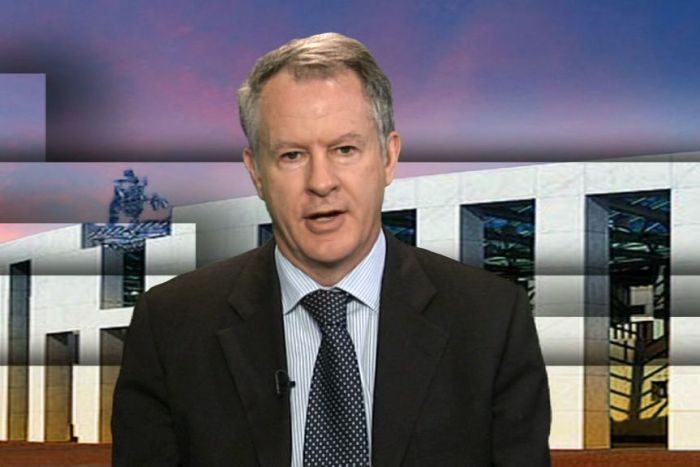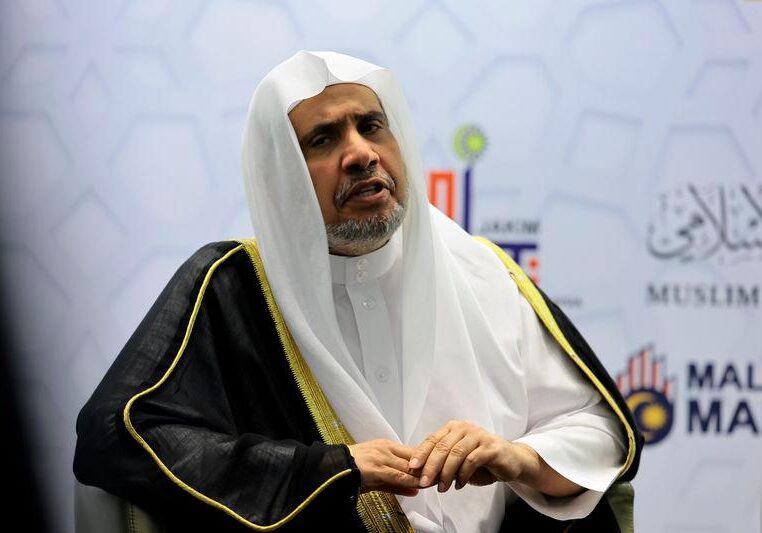Australia/Israel Review
Noted and Quoted – November 2017
Nov 9, 2017 |

Coming up Trumps
The Australian (Oct. 17) backed US President Donald Trump’s decision to decertify the Joint Comprehensive Plan of Action (JCPOA) signed in 2015 with Iran over its nuclear program.
The paper noted that President Obama’s optimism that the deal would make Teheran into a “well-behaved, constructive regional partner has not been realised.” Instead, it said “Tehran has used the vast cash inflow following the lifting of sanctions to double down on its mischief-making… only persistent international pressure can change Iran’s behaviour, and pretending all is rosy won’t cut it.”
An informative online analysis by ABC Middle East correspondent Matt Brown (Oct. 16) predicted that “Trump will be trying to garner international cooperation for a tougher line on Iran’s missile program.”
He explained that in parallel to the JCPOA deal “a UN Security Council resolution that said Iran ‘shall not’ develop missiles capable of carrying nuclear weapons was watered down, and replaced with one that merely ‘called upon’ Iran not do so. And Iran has exploited that loophole, continuing to test missiles with a range of 2,000 kilometres. European powers say they share US concerns about these missiles. But there’s doubt about their willingness to do much about it.”
Critical Theory
On ABC TV “News” (Oct. 14) Washington correspondent Zoe Daniel said, “Donald Trump has long had it in for Iran”. Trump is opposed to the deal and the regime’s policies, not Iran.
Professor Ramesh Thakur defended the JCPOA as a “very good deal. It achieved its purpose, which was to mothball Iran’s nuclear weapons program” and that “there is absolutely no evidence that Iran is noncompliant.”
Thakur said if the deal falls and “Iran went hell for leather back to a nuclear weapons program, it could get the bomb within a matter of months, it has the capacity.”
Months? Surely that suggests the deal is pretty flimsy! ABC TV “The Link” (Oct. 16).
Age advice
AIJAC’s Colin Rubenstein countered many of the claims made by decertification critics, writing, the “deal…does not dismantle Iran’s nuclear program; it merely temporarily limits and delays it. The deal’s ‘sunset clauses’ lift restrictions after 10 years, after which Iran will be free to resume its nuclear program in full. The deal also doesn’t address Iran’s ballistic missile program, a key part of any nuclear weapons system.”
He also noted that International Atomic Energy Agency head Yukiya Amano recently admitted “his agency has been unable to verify Iran’s compliance with Section T of the 2015 nuclear deal, which prohibits activities that could contribute to the development of a nuclear explosive device.”
Furthermore, Iran can “continue working on advanced centrifuges which will vastly speed up its ability to make a bomb when it is ready to do so,” Age (Oct. 22).
Bahrain? Bah humbug
Lowy Institute analyst Rodger Shanahan bizarrely argued that “much of Iran’s attraction in the Arab world is the result of discriminatory policies towards Shia populations in Bahrain and Saudi Arabia, or the unwillingness of Arab states such as Saudi Arabia to compete diplomatically or economically with Iran in Iraq. Without pressuring regional states into competing in the soft power game at which Iran appears more adept, Trump ignored a large part of the problem. At the same time he has left it to congress to make the difficult decisions.”
Since the 1979 Iranian revolution the regime has run a foreign policy based on exporting its radical anti-Western pro-Shi’ite Islamism to the rest of the region.
It has everything to do with Iran’s hegemonic ambition for Iranian-led Shi’ite Islam to overwhelm the majority Sunni strand. It is therefore not popular, but overwhelmingly unpopular, among Sunni Arabs – that is, most Arabs.
Furthermore, Shanahan ignored Iran’s call for Israel’s destruction and the financial and military support it gives to the Palestinian radical terror group Hamas to further this aim because Israel is an infidel usurper in what is considered the abode of Islam.
Like most Palestinians, Hamas is Sunni, Australian (Oct. 17).
Head in the sand
Obama Administration nuclear negotiator Wendy Sherman told the Age/Sydney Morning Herald‘s Peter Hartcher that ending the deal with Iran would make negotiating with North Korea over its nuclear weapons program “impossible or near impossible in the near term” because it would undercut US credibility and raise doubts about the value of negotiating with Washington (Oct. 17).
Maybe not. In a shared editorial, the Age/Sydney Morning Herald (Oct. 24) implied the opposite, saying “it does indeed seem that his wild man approach to diplomacy – contradictory, aggressive, manipulative – has at least altered China’s thinking a little. Or at least, that the Chinese are able to use it to restrain their ally, where former President Barack Obama’s conventional diplomacy only encouraged both Pyongyang and Beijing to ignore the US.”
Chinese whispers
Analysing the accusations of growing alleged interference by the Chinese Government in Australia, Paul Maley wrote “China sees its vast global diaspora as a strategic asset that can be used to further its interests. To a greater or lesser extent most countries do this. The Saudis, the Iranians, even the Malaysians keep a close watch on their expatriate communities or, in the case of the Israelis, use them as a recruiting pool for espionage.”
This is a baseless slur. The two recent controversies involving Israel and intelligence activities absolutely do not justify Maley’s claims that Israel recruits Diaspora Jews for espionage. Australian-born Ben Zygier, who tragically committed suicide in an Israeli jail where he was held for undisclosed offences, was recruited by Israeli intelligence after he moved to Israel. The case that saw Israeli intelligence accused of forging the Australian passports of Jews also occurred only with individuals who had already migrated to Israel, Australian (Oct. 21).
Light on facts
Fairfax columnist Tony Walker criticised Israel and the impending commemoration events there to mark the 100th anniversary of the Charge of the Light Horse at Beer Sheva, which will include significant Australian participation.
Walker slammed re-enactment photos showing “horsemen bearing the Australian and Israeli flags side by side” because “no such Israeli flag existed in 1917, nor the state of Israel itself.”
He questioned the British/French “colonial attempts post-World War I to redraw a Middle Eastern map” which “has exacerbated… age-old conflicts.”
Tellingly, Walker downplayed the significance for Israel’s creation of the 1917 battle in favour of blaming “Western collective guilt” over the Holocaust for giving the impetus needed to pass the UN Partition Plan in 1947, Age/Canberra Times/Sydney Morning Herald (Oct. 16).
In a letter published by the Canberra Times (Oct. 18), AIJAC’s Jamie Hyams noted, “the British Mandate for Palestine, conferred by the League of Nations following the First World War, was specifically intended to facilitate the establishment of a Jewish state there. It is not the case that, unlike all other peoples, the Jewish people only warranted a state in their homeland because so many were murdered.”
Hyams also rejected Walker’s claims about the partition plan having “disastrous consequences” for Palestinians, writing that, “This is true, but only because they and their Arab neighbours declared war with the intention of destroying the new Jewish state. Had they and their Arab neighbours accepted the partition, as the Jews reluctantly did, they would have had a state alongside Israel in 1948, and there would have been no Palestinian refugees.”
Dance off
Israeli choreographer Hillel Kogan explained that his touring satirical/political dance show called “We Love Arabs” which features hummus smeared on the dancers’ faces is an analogy for how Israel’s Jewish majority treats its minority Arab citizens.
“[Hummus] an appropriation of something that existed before, from the Arabs, the Palestinians that were the locals, the natives, like so many other things we have in our culture that we consider Israeli,” he told reporter Annabel Ross, calling Arabs “second-degree citizens in Israel,” Age (Oct. 16).
Actually hummus is a 3000 year-old food that was widespread in the Middle East. Since millions of Israelis are descended from the 800,000 plus Jews that came from Arab majority lands before and after Israel’s creation, and hummus is as much their cultural legacy as it is for Arabs, Kogan is being obtuse.
On ABC Radio National “Books and Arts” (Oct. 18) Kogan said Israelis have an Orientalist perspective of Arabs as “wild” and “uneducated”.
He said the piece is about a left-wing choreographer who doesn’t know any Arab dancers and is trapped in his own “prejudice” against Arabs which is “how I see myself… [how] most Israelis” see them and how Jews and the West see them. In the dance, the Arab dancer is not allowed to speak by the Israeli.
Kogan said his Arab dance partner, Adi Boutrous “would have preferred to speak about this theme or himself in another way than I put him,” which prompted host Michael Cathcart to ask why he hadn’t.
Kogan said “no, because it doesn’t reflect the reality of Israeli society… that Arabs have no voice, nobody’s interested in hearing their voice and they are not part of the culture.”
He said the piece is well received in Israel but couldn’t foresee a time when Israeli Arabs and Jews will peacefully co-exist.
Kogan exaggerates grossly – aside from treating his partner in exactly the manner he deplores. Whilst Israeli Arabs do experience disadvantage, Israeli governments over the last two decades have greatly increased funding to alleviate their economic and social position, and this is clearly having positive effects. In fact, some surveys show that Israeli Arabs are more optimistic about life in Israel than Israeli Jews.
Kurds – No way!
Age Features Editor Maher Mughrabi, who is of Palestinian background and often expresses pro-Palestinian views, wrote a piece (Sept. 24) canvassing the views of some Melbourne-based Kurds ahead of the independence referendum in northern Iraq’s self-governing Kurdish region.
Although it ostensibly included a range of views, the subtext was clear – Kurdish independence is a bad idea.
Mughrabi quoted one man who said “The [ruling] KDP is drunk on a lethal cocktail of Baathism, Zionism and Kemalism… What will happen to those in minorities who vote against independence? Will they be told to go to Iraq?”
Then, Mughrabi moved from quoting others to sharing his own views about the link between Kurdish aspirations and Zionism, writing he “is not the only one who sees echoes of Zionism in a unilateral referendum. The father of Zionism, Theodor Herzl, famously said that ‘if you will it, it is no dream’, which was aspirational but can also be read as a warning: once you move from political theory to action, you are confronted with the realities of your locale. A people’s political status may change, but its geographical neighbours remain the same.”
Herzl always recognised the presence of Arabs there and hoped that as the Jewish community developed, the Arab population would benefit. Arab leaders instead initiated violence, much like today, inciting their people to commit terror based on non-existent Jewish plots to destroy the Muslim holy sites on the Temple Mount.
The right time
AIJAC’s Colin Rubenstein backed Kurdish independence, explaining that they were promised it in the 1920 Treaty of Sevres “but their aspirations for self-determination have been thwarted ever since.”
“The very same regimes that continue to champion the Palestinian cause” oppose Kurdish independence as a “Zionist conspiracy.”
Opposition is a “clear double standard… exposed as all the more fraudulent by the fact that Iraqi Kurdistan possesses all four prerequisites for statehood under international law – a government, a permanent population, a defined territory, and the capacity to enter into relations with other states – while the Palestinians do not.”
There are 22 Arab states, he wrote, and “the objections to establishing Kurdistan reflect the same ugly intolerance and disdain for minority rights that has often wracked the Middle East over the past century, which is also a key to understanding the ongoing and vehement hostility to Israel’s existence,” Daily Telegraph (Oct. 6).
Solidarity
Columnist Rowan Dean condemned the indifference of some Australians to a long list of events that have occurred and do occur to Jews.
He says he should have regretted “the slayings of Jews during the intifadas, but I was told it was their own fault. I should have wept tears of grief for Malki Roth, the young Aussie girl blown to bits along with 14 others in a pizza parlour, but it didn’t seem relevant. I should have been incensed when the murderess who organised that bombing was feted as an Arab TV celebrity. I should have been less critical of Israel’s settlements and more cynical about the Palestinian Authority’s refusal to agree to any peace proposals, but I condemned the first and merely shrugged at the second.”
He also called for rejecting BDS and a deeper understanding that terrorists in the West and against Israelis share a common motivation.
“What Israel has been going through for the past five decades is largely driven by the same fanatical passions and twisted religious fervour that now threatens shopping malls and rock concerts across the Western world,” Courier-Mail (Oct. 2).
A storm in a BDS cup
A Washington Post sourced story reported that a town in Texas was requiring applicants seeking relief aid following Hurricane Harvey to “promise not to boycott Israel” as the result of the state’s anti-Boycott law.
The piece went into the various political aspects of the issue, including an objection by the American Civil Liberties Union on the basis it infringes on people’s constitutional right under the First Amendment to boycott.
But as the Israel Project’s Jacob Millner wrote elsewhere, “Israel’s detractors…have not explained how it affects their right or their ability to malign the Jewish state. Under these laws, they remain free to call for Israel’s destruction. The rest of us just won’t be paying for it.”
Identifying the background and goals of the boycott, divestment sanctions movement (BDS) the story stated the “movement started in 2005 as a nonviolent protest of the country’s treatment of Palestinians.”
BDS’s goals are aimed at Israel’s elimination, insisting on the legally-baseless so-called right of return for any of the five million Palestinians deemed refugees who want to live in Israel, which would effectively end the country’s Jewish identity and majority.
In 2014, BDS founder Omar Barghouti said, “most definitely we oppose a Jewish state in any part of Palestine” and elsewhere said, “[Israel] was Palestine, and there is no reason why it should not be renamed Palestine.”
Subsequent to the article, the law’s author explained the law only applies to the distribution of tax dollars, not private philanthropy, and the town’s insistence on a declaration to receive aid was mistaken, Age (Oct. 22).
Doubting Hamas
It was so near and yet so far on ABC TV News24 “The World” (Oct. 12) with Lancaster University academic Simon Mabon discussing the latest deal signed between Hamas, which rules Gaza, and Fatah, which runs the Palestinian Authority (PA).
Mabon said that if it was implemented, Fatah will take control over Gaza and “regulate the crossing between Gaza and Egypt” which Hamas is currently “regulating”.
He didn’t explain what that actually means, instead saying Palestinians living there would get economic relief from the blockade of Gaza imposed by Fatah in recent months and the far more “serious” blockade by Israel.
It took host Auskar Surbakti to point out that much of the international community blockades Gaza too because it considers Hamas a terror organisation.
Unfortunately neither man named Egypt as the most fervent enforcer of the blockade, only rarely opening its border to Gaza.
Mabon rightly said two important issues that need to be dealt with are Hamas’ 25,000 strong military wing and recognition of Israel.
Earlier, Foundation for Defence of Democracies analyst Grant Rumley said he was not optimistic that much would change on the ground because Hamas wants Fatah to run the Strip but it doesn’t want to disarm.
Hamas has been willing to invite the PA in because its political leadership which was formerly based abroad, is now Gaza-based, and feeling the “squeeze” more, he said. The “recent shifts within the organisation where military wing members have had more of a say in the political wing’s apparatus… indicates that it’s more of a shift towards the military wing in terms of the centre of balance,” ABC Radio National “Saturday Extra” (Oct. 7).
Tags: Australasia, Malaysia






